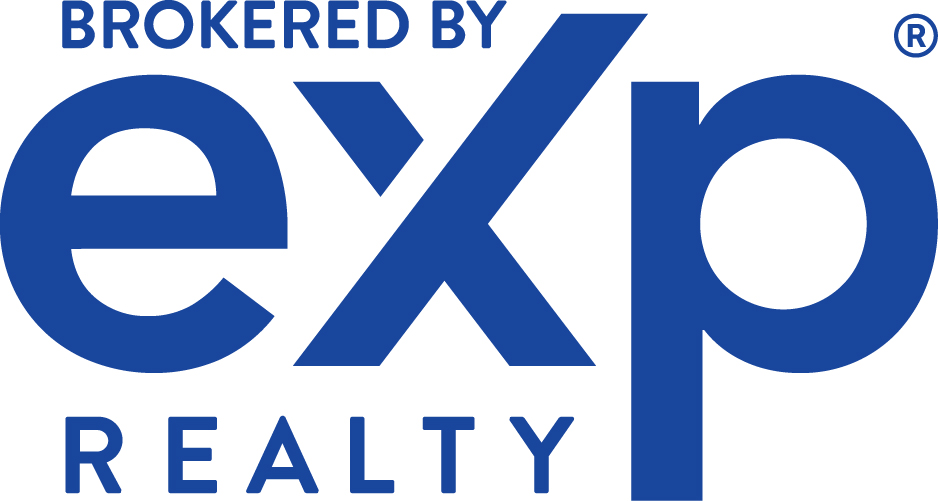Key Takeaways
An appraiser determines a home’s value by looking at the size, location and condition of the property. Appraisals are dependent on comparable sales, which are similar homes within a mile of the property that sold within the past three to six months. A home appraisal is ordered by the lender and paid for by the borrower as part of the closing costs. On average, home appraisals cost between $250 and $500
A home appraisal is used to determine the value of a property when buying a home, refinancing or cashing out equity. Getting a professional appraisal effectively protects the homebuyer and mortgage <money.usnews.com/loans/mortgages> lender from overpaying, while also ensuring sellers and homeowners can extract the maximum amount of equity they’ve built. <www.fdic.gov/consumer-resource-center/2023-06/understanding-appraisals-and-why-they-matter> If you plan on getting an appraisal to find out how much your home is worth, read on for answers to some of the most frequently asked questions about home appraisals.
When Do You Need a Home Appraisal?
When you buy a home, refinance your current mortgage, or apply for a home equity loan or HELOC <money.usnews.com/loans/mortgages/articles/heloc-or-home-equity-loan-which-is-better>, the lender generally will order an appraisal to determine the value of your property being used as collateral.
There are certain exceptions to the rule, however. Some types of streamline refinance loans, such as those backed by government agencies like the Federal Housing Administration <money.usnews.com/loans/mortgages/articles/can-you-refinance-an-fha-loan> or Department of Veterans Affairs <money.usnews.com/loans/mortgages/articles/va-loan-refinancing>, do not require a home appraisal.
You may also decide to get your home appraised on your own if you are curious about the value of your home before putting it on the market, although getting a professional opinion from a real estate agent will help you determine the appropriate listing price if you decide to sell.
What Does a Home Appraiser Look For?
Most appraisals for home purchase loans are completed using the Uniform Residential Appraisal Report <sf.freddiemac.com/docs/pdf/forms/70.pdf>, or URAR. This form outlines a variety of factors that impact your property’s appraised value, including: <sf.freddiemac.com/docs/pdf/forms/70.pdf> Location
Comparable sales, or comps, which are similar homes located within 1 mile of the property that sold in the past three to six months; in sparse or rural markets, these standards may vary Neighborhood characteristics, including area size (urban, suburban or rural), housing supply and demand, local market conditions, age of nearby housing stock, and overall growth rate The lot’s access to utilities like electricity and gas, as well as any easements or encroachments Whether the property is located in a federally designated flood zone Size
Number of bedrooms and bathrooms, as well as the presence of a garage or accessory dwelling unit <money.usnews.com/loans/mortgages/articles/financing-your-accessory-dwelling-unit-tips-for-managing-adu-costs> Square footage of the interior livable space Square footage of unfinished areas, like a partial basement or attic Square footage of the parcel of land Condition
The age of the home, as well as the age and style of the roof The quality of the building materials used for floors, walls, windows and other structural features The condition of systems like heating, air conditioning, plumbing and electrical The type of systems used, such as central air versus window units The design style of the home Some types of government-backed mortgages come with more stringent property guidelines and appraisals. Homes that are financed with FHA loans <money.usnews.com/loans/mortgages/articles/what-is-an-fha-appraisal> <www.hud.gov/sites/dfiles/SFH/documents/2022_appraisal_policies_principles_practices.pdf> or VA loans <www.benefits.va.gov/WARMS/docs/admin26/m26-07/Ch12_Minimum_Property_Requirement_NEW.pdf>, for example, must meet minimum property requirements that go beyond what’s expected of a typical appraisal.
What Negatively Impacts an Appraisal?
A lower-than-expected home appraisal can have wide-reaching implications, especially if you’re trying to sell your property or tap your home’s equity <money.usnews.com/loans/mortgages/articles/how-to-calculate-home-equity-and-how-much-you-can-borrow>. Look out for the following factors that can hurt your home’s professional valuation:
Structural issues, including evidence of pest infestations, water damage or foundation settling An oversupply of housing or declining property values in the nearby area Broken or outdated appliances, as well as faulty heating, air conditioning, plumbing or electrical systems Poor building materials, such as drafty windows, knob-and-tube wiring, lead paint or asbestos tile A roof that’s nearing the end of its lifespan and will need to be replaced What Adds the Most Value to a Home Appraisal?
Greater house price trends where your property is located will have a larger impact on your appraisal than, say, a new coat of paint, but there are some things within your control that can positively influence your home’s appraised value.
Before getting your home appraised, be sure to fix superficial defects like damaged drywall and trim. First impressions matter, so take steps to boost your curb appeal with regular landscape maintenance and exterior upkeep.
Upgraded kitchens and bathrooms can boost your property’s value, as well as amenities like a garage, fireplace or fenced-in yard. However, the return on investment for these types of home improvement projects <money.usnews.com/loans/mortgages/articles/how-to-pay-for-your-home-renovations> may not immediately pay off compared with the up-front cost. To get a better idea of which renovations are worthwhile, you’ll have to look into comparable homes in your neighborhood and the upgrades they feature.
How Much Does an Appraisal Cost?
A home appraisal costs between $250 and $500, with an average cost of appraising a single-family home coming in at $350, according to the home services website Angi. <www.angi.com/articles/how-much-does-home-appraisal-cost.htm> How much you pay for a home appraisal will depend on the location, the type of property and the complexity of the appraisal.
The mortgage lender will select a certified appraiser, and the borrower typically pays for the appraisal. <www.consumerfinance.gov/ask-cfpb/what-are-appraisals-and-why-do-i-need-to-look-at-them-en-167/> You can find the cost of the appraisal on Page 2 of your loan estimate <www.consumerfinance.gov/owning-a-home/loan-estimate/>.
As the homebuyer, you typically can’t “shop around” for a lower-cost appraisal. However, you may be able to negotiate with the seller to cover a portion of your closing costs <money.usnews.com/loans/mortgages/articles/what-are-closing-costs>, including the home appraisal fee.
How Long Does an Appraisal Take?
During the appraisal process, the appraiser will visit the property to collect measurements and verify information on the listing. The appraiser will also note the general condition of the home, its structural integrity and even stylistic metrics like the layout, fixtures and construction materials.
The on-site portion of an appraisal should take no more than a few hours, but it depends on the size of the property and the complexity of the appraisal. After the appraiser has visited the property and collected all the information they need, the report should be available within one or two weeks.
What Happens When an Appraisal Comes in Too Low?
It’s uncommon to get a low appraisal, but it does happen: 8.5% of appraisals come in lower than the selling price, according to Fannie Mae. <www.fanniemae.com/media/48126/display#:~:text=Low%20Appraisal%20is%20an%20indicator,for%2058.8%20percent%20of%20applications> If you’re buying a home and the appraisal is lower than the agreed-upon sales price, what happens next will depend on the terms of your purchase contract. Buyers who include an appraisal contingency <realestate.usnews.com/real-estate/articles/can-you-waive-an-appraisal-contingency> may be able to back out of the sale or renegotiate with the seller to lower the price so it’s more in line with the appraised value.
Without an appraisal contingency, buyers may need to come up with cash to cover the appraisal gap <realestate.usnews.com/real-estate/articles/everything-you-need-to-know-about-appraisal-gaps> – either that or risk walking away from the sale and forfeiting their earnest money deposit. The buyer still has a legal obligation to purchase the home, so the seller may take legal action to force the sale.
It’s possible to challenge an appraisal if you believe it’s too low. Ask your lender for a reconsideration of value, or ROV, to correct errors in the appraisal report or provide additional property information that wasn’t included in the initial valuation.
What’s the Difference Between an Appraisal and an Inspection?
Both appraisals and inspections play important roles in the homebuying process, but they serve different purposes.
The purpose of a home appraisal is to determine the fair-market value of a property. The lender needs to verify that a home is worth the agreed-upon purchase price – and by extension, that the home is worth the amount of money the lender is extending for the mortgage. An appraisal is required by the lender, while an inspection is not.
On the other hand, the purpose of a home inspection is to assess the property’s condition and identify areas in need of repair. If the buyer has an inspection contingency, then they may be able to negotiate repairs with the seller or settle on a lower purchase price to offset the anticipated cost of repairs.
It’s smart for homebuyers to include contingencies for both the appraisal and the inspection in a purchase offer. Be sure to discuss contingencies with your real estate agent to cover your bases during a home purchase.
Phillip Perriott #01806662 eXp Associate Broker
📱310.343.5380 📧Phillip@PerriottPartners.com 🌎PerriottPartners.com 📍222 Pacific Coast Highway 10th Floor El Segundo, CA 90245



